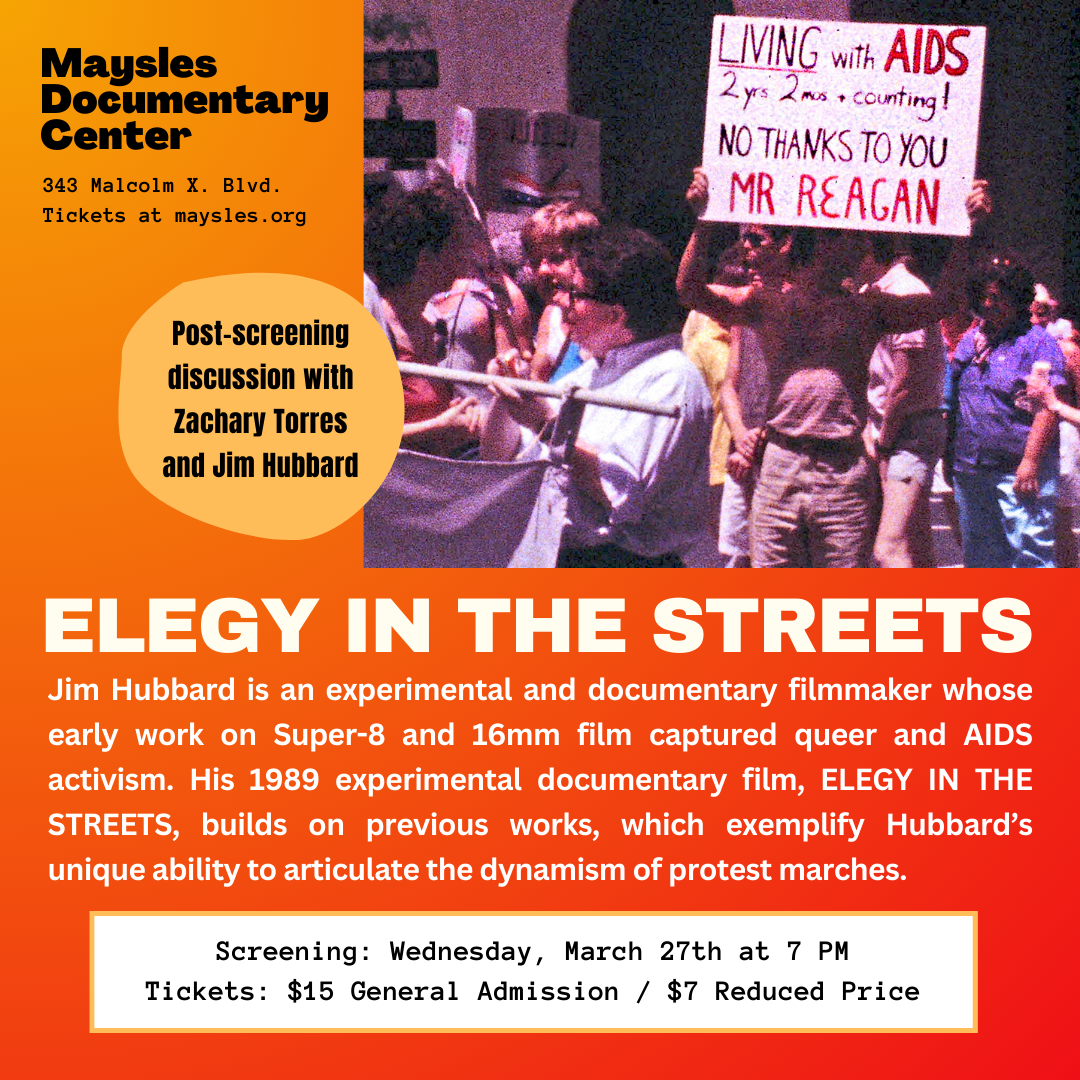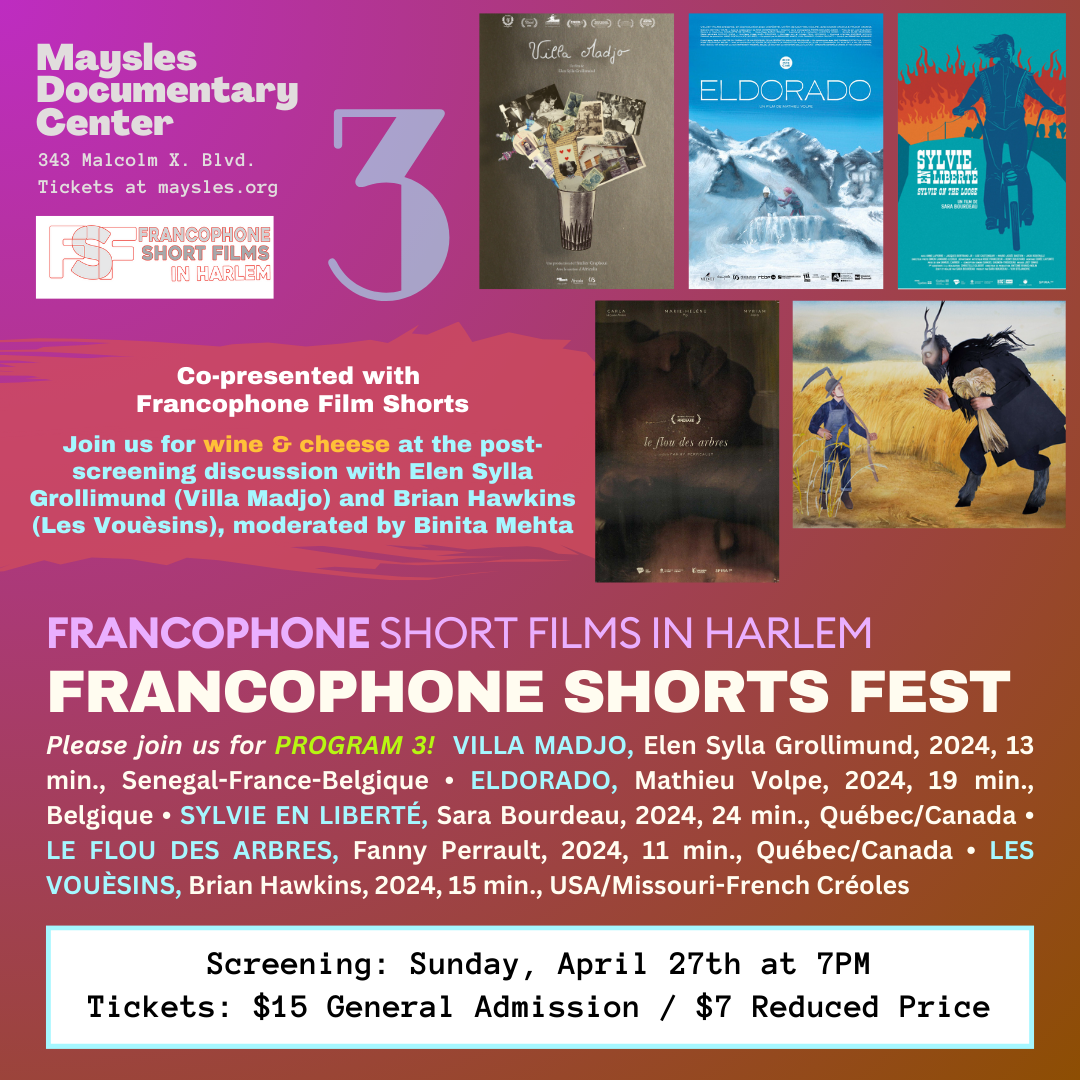IN CINEMA
ELEGY IN THE STREETS
Wednesday, March 27 at 7PM
Tickets: $15 General Admission / $7 Reduced Price
Jim Hubbard, 1989, 28 min.
Curated by Zachary Torres.
Post-screening discussion with Zachary Torres and Jim Hubbard.
Jim Hubbard is an experimental and documentary filmmaker whose early work on Super-8 and 16mm film captured queer and AIDS activism. His 1989 experimental documentary film, ELEGY IN THE STREETS, builds on previous works like STOP THE MOVIE (CRUISING) and JUNE 12, 1982, which both exemplify Hubbard’s unique ability to articulate the dynamism of protest marches.
Moving between large and small scales, Hubbard swims through the crowd with his camera, offering us intimate moments of bodies gathered in solidarity: lovers embracing, people shouting, police dragging bodies. Hubbard also collaborated with Sarah Schulman on the ACT UP Oral History Project and directed UNITED IN ANGER: A HISTORY OF ACT UP (2012). His 1989 ELEGY IN THE STREETS captures the overlapping, and at times, contradictory, processes of mourning and activism during the AIDS Crisis. Hubbard sutures documentary footage of AIDS protest marches to pastoral scenes of his deceased lover, Roger Jocoby, punctuating both with elegiac tropes of flowers and floating balloons. In so doing, Hubbard complicates historical narratives of a seamless transition from mourning to militancy. As an experimental documentary, the film challenges objective memory and leaves space for haunting, the ethereal and ephemeral.
As Jeanne Liotta says of the film, “The latency of the photographic images meld with the ghost of our dead comrades, as they oscillate exquisitely between positive and negative spaces, a queering of the film emulsion in a rebellious glow of beauty and sorrow.”
Through experimental film processing, in which colors are distorted and negative and positive images inhabit the same frame, a queer space is rendered in which bodies blur together, urban landscapes metamorphose into the uncanny, and memory and action mingle. Such experimental techniques blur the boundary between personal and social histories, and they permit us to perceive the marches not just as historical moments but as radical acts whose emotional register is still relevant to us today.
Zachary Torres is a candidate in the Masters in Critical Curatorial and Conceptual Practices at the Graduate School of Architecture Planning and Preservation at Columbia University. His research is focused on queer spaces of dissent and activism. He earned his M.Arch from the Boston Architectural College, where he specialized in sacred space. He has taught at the BAC and MassArt, and has contributed writing to Drawing Matter, Pool LA, and New York Review of Architecture.
Jim Hubbard has been making films since 1974. With Sarah Schulman, he co-founded MIX: NYC Experimental Film Festival and the ACT UP Oral History Project, which showcases 18 years of interviewing 188 surviving members of the ACT UP, NY as well as serving as an archive of hundreds of hours of footage. He made United in Anger: A History of ACT UP, a feature length documentary on ACT UP, the AIDS activist group, which won Best Documentary at MIX Milano and Reel Q Pittsburgh LGBT Film Festival and has played at over 150 museums, universities and film festivals worldwide.












